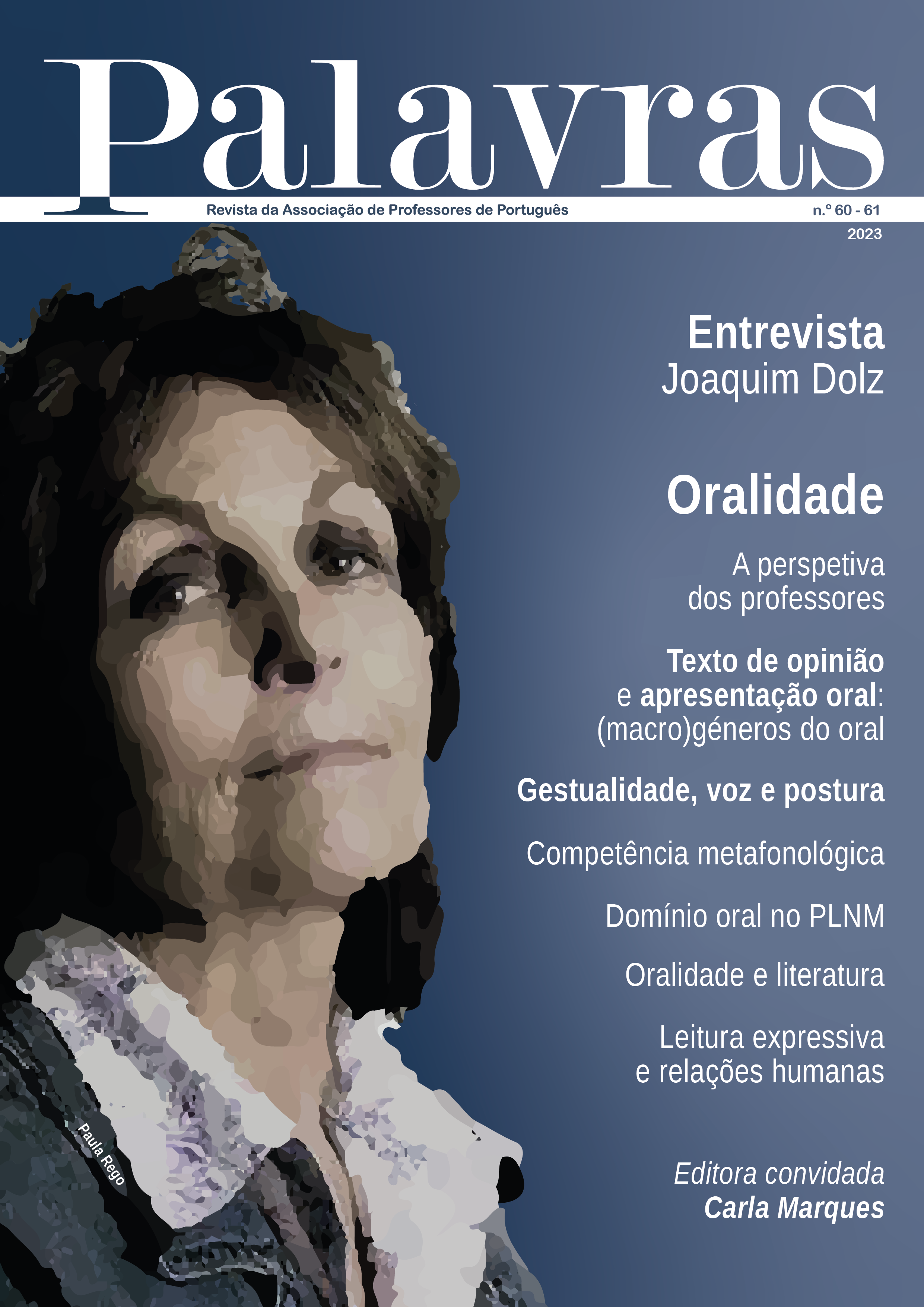Orality in teaching Portuguese as a Non-Mother Language
Teaching programs and pedagogical differentiation
Abstract
In an increasingly globalized world, the ease of mobility of individuals calls for changes in educational guidelines, to which Portugal must also adhere. With a growing percentage of foreign children and young people in the national education system, the importance of the subject of Portuguese as a Non-Mother Language (PLNM) is unavoidable and essential for the academic success of this population who, not infrequently, faces a situation of increased vulnerability.
The focus of this article, based on a documentary investigation, is related to a critical reading of reference curricular documents with regard to communicative competence in PLNM. When recognizing that the academic success of foreign children residing in Portugal depends on the ability to understand what they hear, to express their point of view orally and to interact with the surrounding environment, there is a need to train teachers, rethink the beneficiaries of PLNM teaching and guarantee the implementation of pedagogical differentiation strategies as an unavoidable bet in classes in this discipline.



